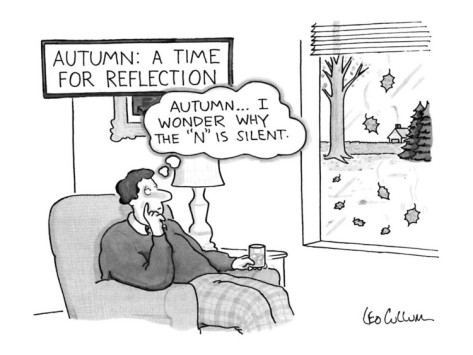
I recently had dinner with a group of friends. The restaurant we were in was full and the acoustics were live so it was difficult to hear conversations. So we each adjusted the volume of our voices so we could hear and be heard. But one friend continued to speak at her normal volume. No one could hear a word she was saying, but she continued on without adjusting. Finally, I made some gestures to her indicating that we weren’t able to hear her (tugged on my earlobe, shook my head). She momentarily increased the volume of her voice but soon returned to inaudibility.
Every year my family sails on the Christmas sailing of the Queen Mary II from London to New York. It’s a great family tradition and we love the ship. Unlike most modern cruise ships, the QM II has a magnificent library: about 2,000 sq. ft. containing 5,000 volumes. Most everyone on board adheres to the unspoken but well-known protocol of being quiet while in a library. It’s a place to read and think. Whisper if you must talk to others. One time, while I was in the library, a man started talking at full volume. People raised eyebrows at him but he was clueless about his inappropriate behavior. Finally, I asked him to lower his voice and whisper. He was offended, but obliged.
In both instances (restaurant, library) the individuals were unaware of how the volume of their voice was adversely affecting their presence in a social environment; one was too soft, the other too loud. At those moments, they both lacked social intelligence.
This is the first of several posts on the topic of Social Intelligence, so let me explain what it is.
John Gardner, in his book Frames of Mind, was the first social scientist to suggest that there are multiple ways in which we can be intelligent, or…unintelligent. He discussed six different kinds of intelligence.
Multiple Intelligence (MI)
-
-
- Abstract intelligence – symbolic reasoning (IQ)
- Practical intelligence – getting things done
- Emotional intelligence – being aware of, and properly responding to, the emotional world
- Aesthetic intelligence – a sense of form, design, literature, the arts, music, and other holistic experiences
- Kinesthetic intelligence – whole body competence such as sport, dance, or flying a jet fighter
- Social intelligence – properly assessing and relating to social environments
-
Social Intelligence defined
Executive management consultant Karl Albrecht defines social intelligence as, “The accumulated wisdom that comes from constantly observing and learning what works and what doesn’t in human situations.” Social intelligence allows us to accurately assess and properly relate to social environments. It involves strategic situational awareness and a complimentary set of skills for interacting successfully to relational settings.
Social intelligence includes:
-
-
- Decorum – propriety and good taste in conduct or appearance
- Etiquette – the conduct or procedure required by good breeding or prescribed by authority to be observed in social or official life
- Manners – social conduct or rules of conduct as shown in the prevalent customs
- Politeness – marked by an appearance of consideration, tact, deference, or courtesy
-
Social ignorance includes:
-
-
- Crudeness
- Cluelessness
- Acting inappropriately
- Being awkward in social settings
-
In the next several weeks I’ll be writing about different aspect of social intelligence. The main takeaway from this post is: In a social setting, be aware of the proper volume at which you should speak.




